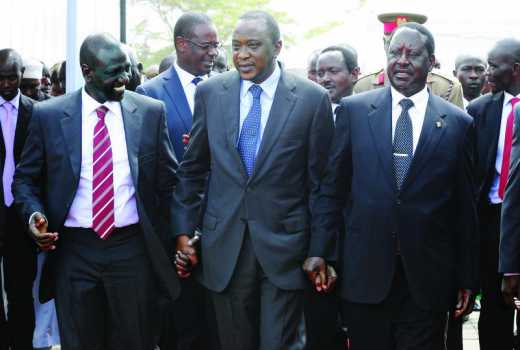×
The Standard e-Paper
Smart Minds Choose Us

Referendum calls, the 2019 census and delimitation of boundaries could potentially radically change the political landscape and bring together strange bedfellows ahead of 2022 campaigns.
As the storms gather over whether or not to change the Constitution -- triggered by opposition chief Raila Odinga less than a month ago while addressing the Devolution Conference in Kakamega -- all eyes are on the dominant Jubilee Party.